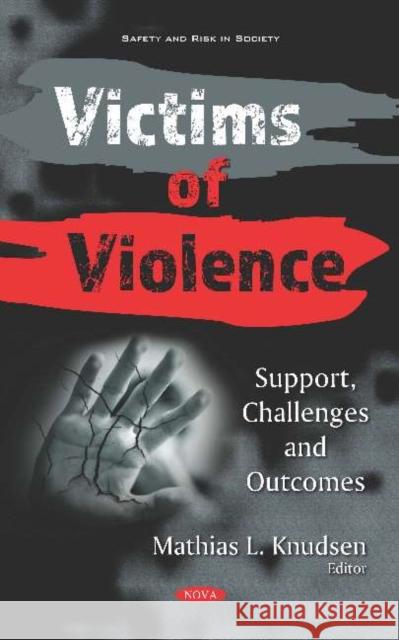Victims of Violence: Support, Challenges and Outcomes » książka
Victims of Violence: Support, Challenges and Outcomes
ISBN-13: 9781536171402
Victims of Violence: Support, Challenges and Outcomes critically exposes some of the factors used in the risk determination of intimate partner violence, alongside an analysis on the definition and management of the risk of recidivism. Traditional beliefs and gender stereotypes underlying police attitudes associated with domestic violence are explored. The authors provide considerations for domestic violence prevention and intervention programs, highlighting the importance of adopting proactive and supportive attitudes in response to victims. Researchers have measured intimate partner violence and survivors' help-seeking through a variety of different instruments, making it difficult to paint a consistent picture of intimate partner violence. As such, this collection includes the results of a study comparing three measures so as to examine whether a certain measure produces a discernible pattern of results. A subsequent study analyzes the relationship between psychopathological symptomatology and intimate partner violence in a sample of 122 Portuguese women participants, 61 with a judiciary victim status and 61 without this status. To avoid discrepancies between medical reporting and the reconstruction of sex crimes, it is crucial to use strategies which focus not only on technical aspects of evidence collection, but also on the way the victim's story will be recorded. Women most commonly experience violence victimisation by someone close to them. Therapeutic work with victims/survivors of intimate partner violence may range from immediate crisis intervention to long-term support. The award winning PAWS FOR EMPOWERMENT program in Pittsburgh, Pennsylvania is discussed, as well as the successes and challenges the program has faced in rescuing and training shelter dogs to serve as canine advocates. A qualitative study is presented which aims to further our understanding of how domestic violence between intimate partners can affect maternal parenting. The sample used comprised 15 mothers and victims of domestic violence, focusing on understanding how they conceive of their role as a parent. The authors go on to explore the extent to which domestic violence is regulated in Indonesia, and the extent to which such regulation is implemented. This compilation also examines how the practice of forced marriage arrangements creates vulnerabilities for girls and young women. Accordingly, a discussion is provided concerning differences and similarities between the concepts of arranged and forced marriage, and its relationship to sexual trafficking. The authors summarize findings on the association between cyber dating abuse and offline dating violence in a sample of 145 Portuguese adolescents and young adults. Additionally, a review of the literature on the phenomenon of multiple child and youth victimization is carried out, addressing the main risk factors, the implications for the development of children and young people, and guidelines for intervention. The impact that community violence exposure has on youth is assessed, accompanied with practical proposals for prevention. The concept of community violence and the different types of violence and crimes that could be involved are examined, mapping the prevalence of youth affected by this type of violence. Accordingly, to develop appropriate helpful responses to victims of violence and crime, it is particularly relevant to assess people's perceptions, to be aware of their victimization experiences and to identify their needs. In closing, using Saint Lucia as an example, some of the challenges of supporting victims of intimate violence on an island are illustrated, discussing innovative policies and practices to best support victims in this context.











